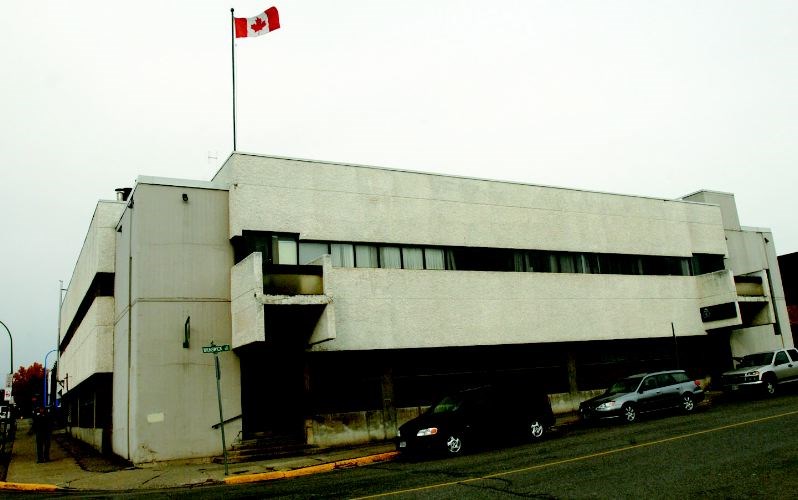Part 1 in a two-part analysis of RCMP costs in Prince George and across the province.
The faster the city can get to work on the new RCMP building, the cheaper it will be for the taxpayer. City council was given this message on Monday night by a committee struck to examine the cost of the new RCMP detachment, and council responded by picking the design option they liked best, and kick-started the referendum process necessary to get the money.
The committee pegged the most expensive realistic price tag at about $38 million, but due to cheap construction prices right now, that number could go down significantly if the project gets going quickly.
"Recent conditions in the B.C. construction marketplace suggest that there is substantial capacity in the market and that prices are at, or near, their lowest levels since the start of the market downtown," said city manager Derek Bates. "In light of those considerations, we consider there to be significant benefit from a cost perspective in taking the project to public tender and letting the market respond."
That couldn't happen without the price being approved first by council, then by the public. Nothing with a price tag that big can go ahead without a direct question being put to the general population. There was some debate about whether to go to a full referendum on the issue or via an expression of opposition process.
Council decisively voted for the latter, since a common referendum would best be done during the next municipal election which would waste time and potentially lose the good construction prices.
Instead, the alternate approval process (an approved way laid out in B.C.'s Community Charter) was approved by council whereby people can write in their disapproval of the proposal and if 10 per cent of the electorate does so, the proposal has to go to common referendum. If the 10 per cent threshold is not reached, however, the proposal can go through with no more delay.
"The costs have come down significantly, but not enough," said councillor Brian Skakun, who opposed the project completely. He is concerned that it is too expensive with so many other items on the taxpayers' bill.
"It ain't getting any cheaper," said mayor Dan Rogers, summarizing the sentiment of council's majority. "If this could have been acted on in the '90s... Our inability to find a solution has taken us to where we are today."
Veteran councillor Murry Krause explained that when he was first elected, the Prince George RCMP detachment was a safety concern and a failing workplace then and it has only worsened nearly 15 years later. All councillors except Skakun who sat on the study committee - Dave Wilbur, Cameron Stolz and Don Bassermann - were united in the view that the costs were daunting but a new building was essential to ongoing public safety.
"I would like to thank the RCMP for doing their work 24 hours a day, seven days a week, 365 days a year in those conditions," added councillor Shari Green. "They are out there saving our lives, making our community safer, going after the gangs, and all (in a deplorable work environment). This is something we need, a project that needs to be done."
The study group worked with municipal staff, the RCMP, and outside experts to design the best building they could. They then got out the red pencil and started editing. They trimmed away extras in three scenarios, and put the choice to all of council on Monday. The one chosen did without underground parking and an Emergency Operations Centre, amounting to a savings of more than $6 million.
Due to Prince George's size, and the nature of this building, it is disqualified from almost any contributions from other levels of government. There are some grant applications pending, but council was told to expect to have to pay the whole bill.
Also approved (researched in advance) was a financing period of 20 years.
Any B.C. municipality is allowed to borrow money under strict provincial guidelines. Prince George has already borrowed some money against its allowable cap, but still has room to borrow about $24 million more without special approval. They voted Monday to apply for the special approval needed to borrow the approximately $14 million more.
They will be aided in their request by a particular transaction that has been paying dividends for the taxpayers of Prince George. A cost restructuring deal with Terasen Gas sits on the municipal books as a borrowing transaction, and technically it originates as such, but it actually brings in money to city coffers. Nonetheless, it still counts against the city's borrowing cap - about $5 million worth each year that would normally be available.
Should the proposed plan go through as presented, it would cost the average household (calculated to be $200,299 in Prince George this year) an extra $66 per year for 20 years.
The public was given expressed assurances from the council table that the final decision could not go ahead just yet. A public input process must, by regulation, still be held so individuals and groups can voice their views before anything gets definitively signed. Stakeholder meetings, a public open house, media briefing sessions, website information, social media outreach, and other information sharing events will be arranged.
In Part 2 of this series, The Citizen delves into the cost of policing provincewide and the Prince George connections to B.C.'s contract negotiations for RCMP police services. The current contract expires in March, 2012. It was one of the hottest topics of debate at the Union of B.C. Municipalities convention this past week, and analysis from the floor will be coming soon.



